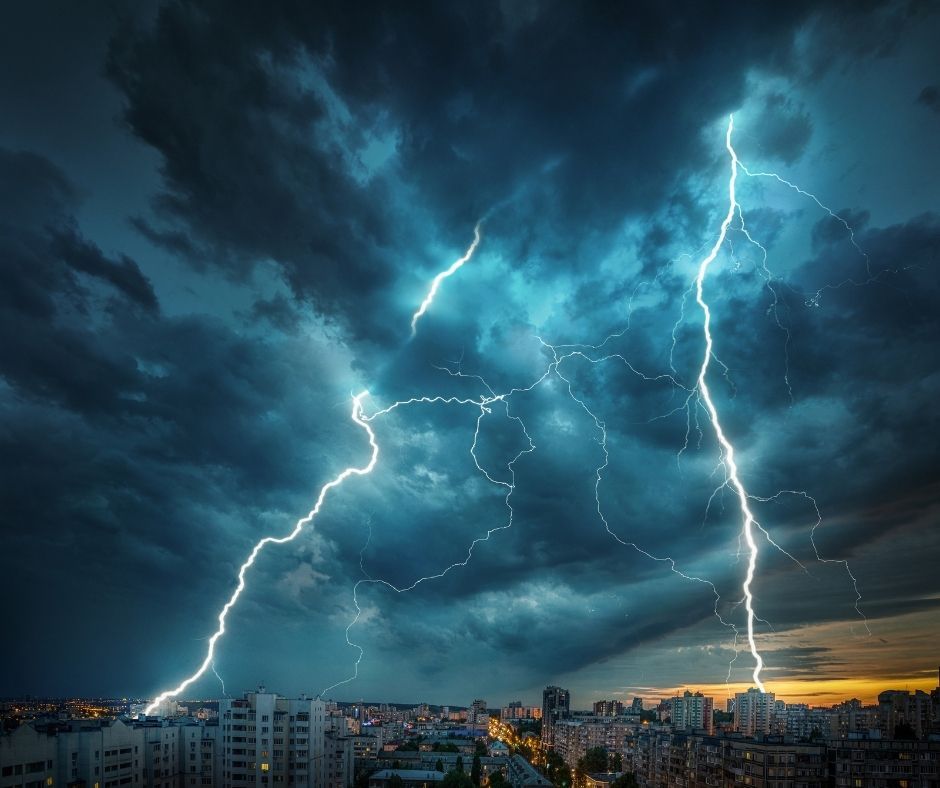
With much of the South under a severe weather and tornado watch, it's time to review your family's safety plans. We want to ensure no one is caught unprepared, so we've compiled a checklist to protect your family and home in the face of a severe weather emergency.
Before the Storm
Stay Updated
Check the forecast regularly to see if your area is under a tornado watch or warning. Listen to local news or a NOAA Weather Radio, and make sure your notifications are on for a news or weather app.
Make a Good Safety Plan
Have a family plan that includes an emergency meeting place. Choose a safe room in your home. Some options are the basement, storm cellar, or a room on the lowest floor with no windows. If you live in a mobile home or home without a basement, identify a nearby safe building, such as a church or family member. See more ideas for your family plan. You can also find plans for reinforcing an interior room on the Federal Emergency Management Agency website.
Secure Your Home From Storm Debris
The biggest risk in a high-wind weather event like a tornado is from flying debris. Secure entry doors, garage doors, and windows to keep the debris from getting inside the home. You can buy bracing products that can be installed before a tornado hits, which will make doors and windows stronger and more wind resistant. It's a good idea to anchor any belongings or property that could be moved by heavy winds, such as fences, furniture, or other items in your yard. Finally, if time allows, cover your outdoor A/C unit to prevent damage from wind or debris.
Make a Basic Emergency Kit
- Food: Three-day supply per person
- Battery-powered or hand-crank radio
- Hand-crank flashlight
- First aid kit
- Cell phone with charger
Protect Electronics
During the Storm Tips
Keep Listening
Staying on top of weather updates will allow you to adjust your plan as necessary.
Seek Shelter
Go to your basement, safe room, or an interior room away from windows. If you're outdoors or in a car, find the closest safe building or ravine. If driving conditions are dangerous, staying at home might be safer than leaving. Follow authorities' directions regarding sheltering in place or evacuating the area.
After the Storm Tips
Stay Updated
Keep weather notifications on to make sure the danger has passed.
Check Ins
Contact your family, friends, and neighbors.
Evaluate the Damage
After the threat is over, assess your property. When walking through storm damage, wear long pants, a long-sleeved shirt, and sturdy shoes, and don't enter any damaged buildings. Be aware of insurance scammers if your property has been damaged.
Inspect Outdoor HVAC Units
If you didn't have time to prepare your outdoor units before the storm, now is the time to have them inspected and protected. Be sure to to check the unit before turning it back on. Flooding or flying debris could have damaged your unit and turning it on can make the problem worse. Less commonly, storm winds can cause disconnections within your AC unit, which could lead to toxic refrigerant leaks. Your safest option is to contact an HVAC pro to check for storm damage.
If you're in need of HVAC, handyman, or any other home repair in Tennessee, count on the team at Shumate to do the job. Call us at 615-499-3001 to schedule an appointment. We're available 24/7 for all your electric, plumbing, and HVAC needss

